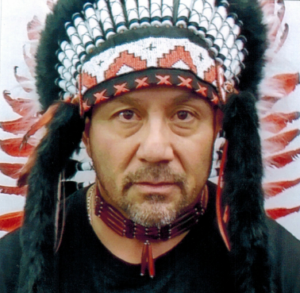-
TRIBAL AFFILIATION
Elvis Jasper Rogers Comanche
-
SURNAME HERITAGE
England/Ireland/Scotland

Rogers History, Family Crest & Cot of Arms
The ancient Anglo-Saxon culture once found in Britain is the soil from which the many generations of the Rogers family have grown. The name Rogers was given to a member of the family who was a fame-spear or one who was a skilled soldier. The surname Rogers was originally a Germanic personal name derived from the elements hrod, or “renown” combined with geri, or “spear;” thus the name suggested “prowess with a spear.” 1 The surname Rogers may have derived from the Old French word Rogier. After the Norman Conquest, the Old English naming system gradually dissolved. Old English names became less common and were replaced by popular continental European names. The earliest surnames in England were found shortly after the Norman Conquest and are of Norman French rather than native English origins.
Early Origins of the Rogers family
The surname Rogers was first found in the Hundredorum Rolls of 1273 as Adam filius Rogeri in Lincolnshire; and Robert filius Rogeri in Norfolk. 2 Kirby’s Quest of Somerset listed Waltero Rogero in Somerset, 1 Edward III (during the first year of Edward III’s reign.) 3
Over 100 years later, the name had evolved from the early Latin versions that held either the vowel “i” or “o” to the more recent spellings we understand today. The Yorkshire Poll Tax Rolls of 1379 listed Willelmus Rogerson and as a personal name Rogerus Smyth. 2
The name was “rare or absent in England north of a line drawn from the Humber to the Mersey. Scattered over the rest of England and also Wales, but generally infrequent in the eastern counties, being by far the most numerous in the western half of its area. It is most common in Herefordshire and Shropshire, and also in Cornwall.” 4 This author continues “Rodger is the Scotch form, it has no definite distribution. In England we only find it occasionally, as in the case of Rodgers in Derbyshire.” 4
From this vantage, we explored the aforementioned “Scotch” (Scottish) origin further. In this case, many of the records were recorded in the Anglo or English version rather than the previous entries that had the Latin form. “Roger was appointed abbot of Dryburgh in 1152. Roger, son of Oggou, attested a deed of middle of thirteenth century. William Roger was tenant of the abbot of Coupar-Angus in 1468.” 1 Black continues “Rodgers is the more common form with Scots. Rogers, in some parts of central Scotland, is pronounced Rodgie, and some Gaelic-speaking people in Perthshire pronounce it Rougie and sometimes Royger. John Rodgers, born in Maryland, 1771, son of a Scots colonel of militia, fired with his own hand the first shot in the war with Great Britain in 1812.” 1
“The family of Rogers of Home, in Shropshire, are a cadet of the Norburys of Norbury in that county. In 7. Edward II., [(seventh year of Edward II’s reign)] Roger de Norbury, son of Philip, and grandson of Roger de Norbury, had a grant of the estate of Home. His son took the name of Rogers, and his posterity under that appellation have ever since resided at Home. ” 5
Roger of Salisbury (died 1139), “also called Roger the Great, bishop of Salisbury and justiciar, was of humble origin, and originally priest of a little chapel near Caen. The future king, Henry I, chanced, while riding out from Caen, to turn aside to this chapel to hear mass. Roger, guessing the temper of his audience, went through the service with such speed that they declared him the very man for a soldier’s chaplain, and Henry took him into his service.” 6


